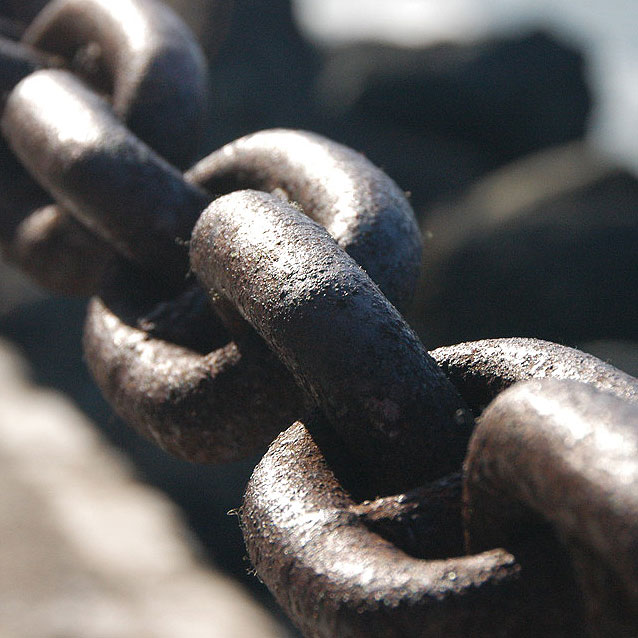 Under the principles of net neutrality, Internet Service Providers [ISPs] are like common carriers, carrying all bits equally, but with neutrality nullified, what’s the likely outcome?
Under the principles of net neutrality, Internet Service Providers [ISPs] are like common carriers, carrying all bits equally, but with neutrality nullified, what’s the likely outcome?
The Federal Communications Commission [FCC] in the United States has voted to nullify the common carrier status of ISPs, and thus to kill net neutrality, but of course other nations may not do so and I think there are customer actions that could make it difficult for carriers to run roughshod over this principle. The FCC calls their own action “Restoring Internet Freedom” and I, along with millions of others, contend that it’s only restoring the freedom for carriers to differentiate and prioritize, and charge as they see fit, making it more difficult for us common folks in the long run.
On the positive side, improved and more timely data service seems really attractive. People want it. Faster and stutter-free movies. Voice-over-IP calls without interruptions. Gaming and hugely-fast downloads. So there is actually some consumer pressure to prioritize.
Personally I think most of this is “entertainment motivated” in that the customers who care will be mostly the “consumers” — not businesses and not nonprofits. That’s because even if ISPs charge businesses more for these premium prioritized services, the big businesses will pony up and pay for it. Small businesses and individuals will be less able to do this, and that’s a big part of the problem.
 So here’s how I think things will play out:
So here’s how I think things will play out:
Advertising — The first thing that’ll happen, and it will be soon, though it’s not specifically limited by net neutrality, is that ISPs will look at your web usage and keep track of the sites you visit. They’ll make money by selling this data to third parties. Are you visiting Amazon.com a lot? You’re probably shopping. Are you visiting REI.com a lot? You’re shopping for outdoor gear. Visting Toyota.com a lot? Shopping for a new car. This kind of information is of great use and worth money to retailers, advertisers, car manufacturers. This kind of data is already commercially shared from web sites to advertising networks, but when ISPs can gather and sell this information, they’ll make money from it. And what’s more, ISPs can collect the data without your knowledge, and without leaving any evidence that they are doing so. Other web sites and advertisers do not have that advantage.
An ISP can also sniff the content of your (unencrypted) email, or your file downloads, which is something a web site cannot do. In other words, the ISP can create an open book full of information it can sell, because it is capable of monitoring every unencrypted communication you make through its connection. You may know that Google’s gmail can sniff your gmail traffic and will present advertising based on the contents of your mail — the ISPs would be able to do this regardless of where your email is held, if the connections are unencrypted.
The Let’s Encrypt project, which has ramped up mightily in the past year, aims to make it easier to protect traffic between you and the web sites you use, by making web site content unreadable by ISPs. The ISPs can still see which sites you use and how long you’re using each site, but when a web site is encrypted (HTTPS) the ISP can’t see which pages you’re viewing, nor what content you’ve viewed or submitted. (And you can also protect all of your network traffic from your ISP using a VPN, which I’ll discuss later.)
So here’s how I think this is all going to play out over a time period of one to three years (2018 to 2020):
 The Inspection Scenario — To shape and prioritize your traffic, the ISP wants to understand (and prioritize) the type of data packets you’re sending. In theory and as far as the technology is concerned, all packets are just binary data, but in practice an ISP can look inside those packets (see deep packet inspection) and make conjectures about which ones are video, or audio, or gaming, or file transfers, and could treat them differently. Such as giving them higher or lower priority. Or charging more for some kinds of data. And because the carrier knows where your packets are going (meaning Disney, or YouTube or Netflix), it can differentiate and then prioritize based on financial agreements it may have (or interests) in those endpoints. So I predict that ISPs, who already have the capability to examine content, will be differentiating in some way based on your content as early as 2018.
The Inspection Scenario — To shape and prioritize your traffic, the ISP wants to understand (and prioritize) the type of data packets you’re sending. In theory and as far as the technology is concerned, all packets are just binary data, but in practice an ISP can look inside those packets (see deep packet inspection) and make conjectures about which ones are video, or audio, or gaming, or file transfers, and could treat them differently. Such as giving them higher or lower priority. Or charging more for some kinds of data. And because the carrier knows where your packets are going (meaning Disney, or YouTube or Netflix), it can differentiate and then prioritize based on financial agreements it may have (or interests) in those endpoints. So I predict that ISPs, who already have the capability to examine content, will be differentiating in some way based on your content as early as 2018.
Premium Services Plan — If the network manager has the capacity to examine your data, it could charge more for certain types of data — for the data that has more value to you. In other words, the carrier might “take a cut” of the economic value of the packets. This would be a lot like your phone company charging you more money to call a bank than to call a barbershop. Doesn’t happen to phone calls because the phone company (in the US) is a common carrier and regulated thus by the FCC. But that’s what Net Neutrality did for data carriers — and that’s now been rescinded by the FCC. I predict that ISPs will announce premium pricing for some types of content by 2019 — starting with voice-over-IP or video — and will promise to prioritize such types of traffic, for that price.
 Transfer of costs to the supplier — Using a process we call zero-rating, an ISP may make certain types of content effectively free to its customers. They could make web access free, but inject advertising. They could make music “free” as T-Mobile has (meaning certain sites are free). Or throttle the delivery of (low-quality) video as Verizon has. Zero-rating has the effect of making other content more expensive, and of excluding content or providers based on criteria invisible to the customer. I predict that during 2018 more ISPs will first offer to accelerate certain content (such as video) for a price to the customer, then begin soliciting suppliers themselves to underwrite this, and eventually contend that this saves the end user from having to bear this cost.
Transfer of costs to the supplier — Using a process we call zero-rating, an ISP may make certain types of content effectively free to its customers. They could make web access free, but inject advertising. They could make music “free” as T-Mobile has (meaning certain sites are free). Or throttle the delivery of (low-quality) video as Verizon has. Zero-rating has the effect of making other content more expensive, and of excluding content or providers based on criteria invisible to the customer. I predict that during 2018 more ISPs will first offer to accelerate certain content (such as video) for a price to the customer, then begin soliciting suppliers themselves to underwrite this, and eventually contend that this saves the end user from having to bear this cost.
Premium Sites Plan — The network manager could also charge customers more, or give more reliable or faster service, for traffic from specific providers. “Get your Disney movies faster and without glitches – $19.95 a month” is what I’d expect to hear within a few years. This would be done by prioritizing all traffic from Disney to you. Or any set of providers. Web sites. Email. And so forth. Any service the ISP thinks it can charge extra for, it will. I predict that by 2019 we will see Top-100 Premium Sites Plans from ISPs. Something that would have been illegal under the Obama-era FCC rules of net neutrality.
HTTPS (web) encryption — We’ve already reached the point where around half of web sites use HTTPS encryption to keep pages and submitted forms private. This will increase to 90% by 2020 and will frustrate the ISPs ability to look inside your interaction with these web sites.
Encrypted email — Here I’m pessimistic. People using standalone email, such as Apple Mail or Entourage, Outlook, Thunderbird apps on computers, have had encryption available for 20 years, though it hasn’t been easy to use until the last year or two. I predict email encryption will only slightly increase by 2020. However, more and more customers use outlook.com and gmail.com and services that use HTTPS encryption on their webmail interfaces, which renders email contents opaque to ISPs. This is a mitigating factor that will continue to improve the privacy of email, except that the email hosting company can, of course, still read your mail.

The Resistance — How could you prevent this kind of predatory behavior? Well even today, you could use a Virtual Private Network [VPN] to encrypt everything between your computer and the net. The encrypted packets are tunneled to another location (beyond your ISP), where they emerge onto the public Internet. For example, if you’re in San Francisco using “BigBad ISP” as your ISP, your computer might encrypt everything and send it to New York City, where it might emerge on a “GoodGuy ISP” network. BigBadISP would lose the ability to examine your data, and consequently could only charge you one rate for all traffic. That wouldn’t prohibit GoodGuy from doing something on its end, of course, but presumably you’d choose to emerge in friendly territory. I predict that by 2018 VPNs will be used by 20% of individuals and that ISPs will discourage their use by limiting VPN traffic. I predict that by 2019 ISPs will differentially charge more for VPN traffic from non-business customers or will require that customers upgrade to more expensive business or “Pro” plans in order to use a VPN. And I think that by 2020 ISPs will block VPN traffic from consumer accounts.
Higher Priced Privacy — And with VPNs blocked, ISPs will offer “Privacy services” for an additional price. In other words, if your ISP can’t see and make money off your traffic, they’ll charge you more to pay for the difference.
So the bottom line here is that businesses are in the business of making money by offering services. ISPs have offered connectivity for many years. That connectivity was priced initially based on bandwidth, then on data volume (particularly for mobile data), and now ISPs want to price their service on the value of the data. They’ll attempt to charge both their customers and the businesses who want to interact with their customers. They’ll offer “prioritized” services for an extra fee where there was no fee before. They’ll throttle services that don’t comply.
Because they can inspect customer behavior and data, they’ll profit by monetizing the value of the information about their own consumer customers. If that becomes difficult because of encryption, they’ll charge the customer an extra fee to protect his own data, under the guise that this is an improvement.
Net neutrality, and its interpretation under law, has largely protected consumers from this scenario for years. Now you have my predictions about how it could all unravel in just a few years.
Leave a Reply